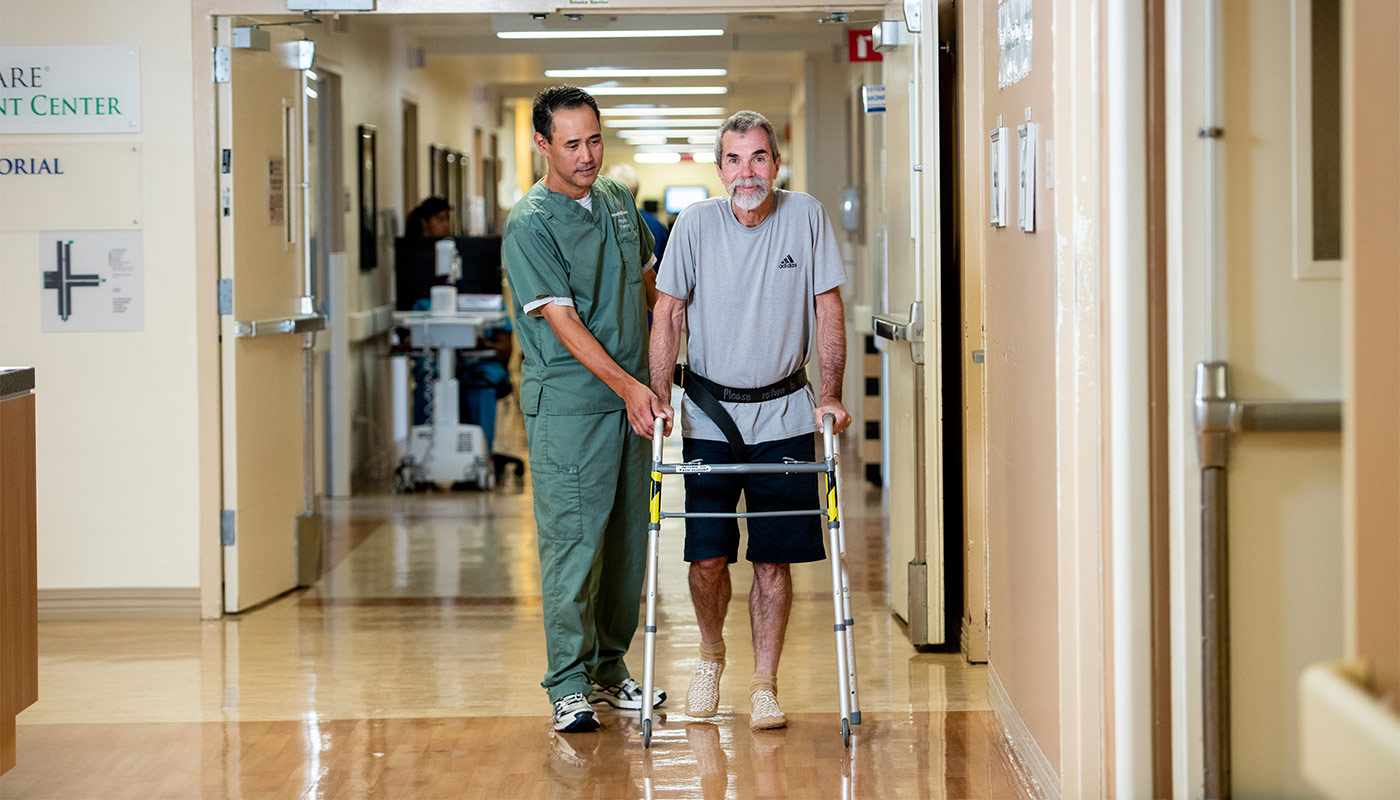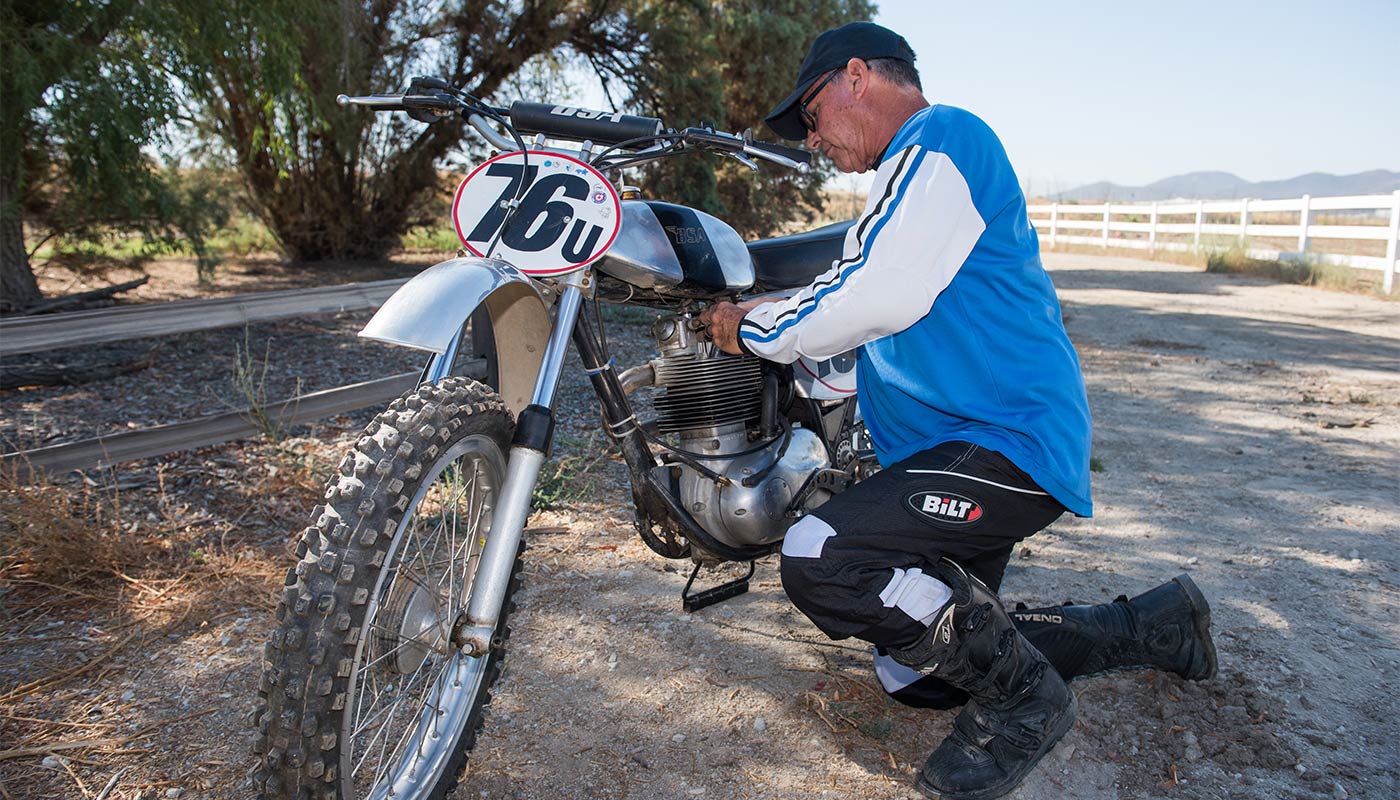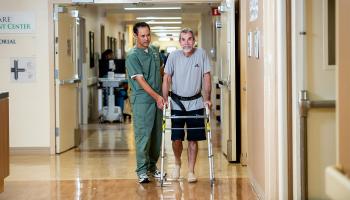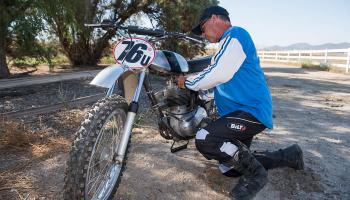View Our Online Pre-Operative Class
Is It Time to Consider Joint Replacement Surgery?
 Joints are involved in almost every activity. Movements such as walking, bending and turning require the use of your hip and knee joints. The shoulder is also a joint and is considered the most flexible joint in the body, allowing you to move your arm in various positions.
Joints are involved in almost every activity. Movements such as walking, bending and turning require the use of your hip and knee joints. The shoulder is also a joint and is considered the most flexible joint in the body, allowing you to move your arm in various positions.
Each year, millions of people undergo joint replacement surgery in the U.S. Primary candidates for joint replacement surgery are typically individuals with chronic joint pain that interferes with daily activities, such as getting out of a chair, going upstairs, sleeping and walking.
Joint replacement surgery is only recommended after an examination and diagnosis of your particular joint problem. Joint replacement surgery is usually the last line of treatment after conservative measures, such as exercise, physical therapy and medications have proven ineffective to relieve your pain.
The decision to have joint replacement surgery should be a cooperative one between you, your family, your physician and your orthopedic surgeon. If you have been living with chronic joint pain, schedule a consult with a surgeon from the MemorialCare Joint Replacement Center at Long Beach Medical Center to learn more about your condition and potential treatment options.
View common myths about joint replacement surgery.
Joint Replacement Surgery
The MemorialCare Joint Replacement Center offers joint replacement surgery to patients looking for more permanent solutions for chronic pain that affects their quality of life. We offer joint replacement surgery for the knee, hip and shoulder by an experienced orthopedic surgery team. When the joint becomes diseased or injured, the resulting pain can severely limit your ability to move and work. The most common reason for joint replacement surgery is severe osteoarthritis (OA). Joint replacement surgery involves the removal of damaged or diseased parts of the joint, replacing them with artificial components, called a prosthesis (implant). The prosthesis is designed to replicate the movement of a normal, healthy joint. Your surgeon will discuss the type of implant that will be used for your joint replacement surgery. Recommendations for surgery are based on a patient's pain and disability, not age.
- Partial Knee Replacement Surgery: Partial knee replacement is an alternative to total knee replacement where only the damaged part of the knee cartilage is replaced with a prosthesis. This procedure is typically the option recommended by surgeons when the damage to the knee is limited to one part of the knee and allows the surgeon to preserve healthy ligaments and bone. In general, candidates tend to be younger and more active. Partial knee replacement surgery helps patients regain their quality of life sooner, instead of waiting in chronic pain for a total joint replacement surgery.
- Total Knee Replacement Surgery: Total knee replacement surgery replaces a severely damaged knee joint with a prosthesis. Total knee replacement surgery is considered for patients whose knee joints have been damaged by either progressive arthritis, trauma or other rare destructive diseases of the joint.
- Total Hip Replacement Surgery: Hip replacement surgery (also called total hip arthroplasty) is a procedure that replaces a worn-out or damaged hip joint to restore the alignment and function of your hip. The surgeon replaces the damaged joint with a prosthesis. This surgery may be recommended after a hip fracture or severe pain from OA.
- Shoulder Replacement Surgery: Joint replacement surgery can also be performed on other joints, including the shoulder. Over time some people can experience pain and stiffness in their shoulder due to arthritis or injury. In shoulder replacement surgery, the damaged parts of the shoulder are removed and replaced with a prosthesis. The treatment options are either replacement of just the head of the humerus bone (ball), or replacement of both the ball and the socket (glenoid).
Welcome to the Joint Replacement Center
The decision to have elective joint replacement surgery is the first step toward a healthier lifestyle. Our program is designed to return you to an active lifestyle as quickly as possible.
Over the years, joint replacement techniques and instrumentation have undergone countless improvements. The experienced surgeons at Long Beach Medical Center embrace advanced technology in joint replacement technology.
One of the latest advancements in technology is a robotic-assisted surgical technology called Mako™ Robotic-Arm Assisted Surgery, bringing a new level of precision to treating patients with knee and hip pain. Mako is often preferred by younger, more active patients because it typically results in a faster recovery and quicker return to recreational sports and activities from before surgery. Mako Technology also reduces the percentage of patients that will require a revision surgery in their lifetime.
Mako™ Robotic-Arm Assisted Surgery
Mako™ Robotic-Arm Assisted Surgery is an innovative solution for people suffering from painful arthritis of the knee or hip. Mako Technology uses a 3D CT-based planning software so skilled surgeons can know more about your unique anatomy to create a personalized joint replacement surgical plan. Mako Technology procedures we offer include:
- Mako Partial Knee: Mako Partial Knee is an innovative treatment option designed to treat early to mid-stage osteoarthritis (OA) that doesn’t affect all three compartments of the knee. By selectively targeting the part of the knee damaged by osteoarthritis, our surgeons can resurface your knee while sparing the healthy bone and ligaments surrounding it. Candidates tend to be younger, more active and in otherwise good health.
- Mako Total Knee: If you are living with mid to late-stage OA of the knee, Mako may be an option for you. During Mako assisted surgery, your orthopedic surgeon will use a robotic-arm assisted procedure that includes real-time information and images of your knee, allowing for more precise placement of the knee implant.
- Mako Total Hip: If you are suffering from hip OA, Mako may be a good alternative to traditional total hip replacement surgery. During Mako assisted surgery, your orthopedic surgeon will use a robotic-arm assisted procedure that includes real-time information and images of your hip, allowing for more precise placement of the hip implant
Our experienced surgery team with one of our Mako Systems
We are a leader in Southern California in hip and knee replacements — where a revolutionary philosophy encourages patients to become active as soon as possible, often on the same day of joint replacement surgery.
Patients, their families, volunteers and staff work together after surgery as the patient starts “Cruising to Recovery." With a dedicated team of joint replacement specialists, the MemorialCare Joint Replacement Center offers the latest and most effective treatments for total joint replacement.
We offer private patient rooms, a group therapy room, patient education including pre-operative class, discharge class and patient guidebooks, family-centered care, rehab coaches and group lunches, all in one dedicated area with outstanding outcomes.
Our team includes physicians, physician assistants, patient care assistants, nurses, orthopedic technicians, and physical and occupational therapists specializing in joint care. Every detail, from per-operative teaching to post-operative exercising, is considered and reviewed with you. The joint care coordinator will plan your individual treatment program and act as your guide.
Preparation, education, continuity of care and pre-planned discharge are essential for optimum results in joint surgery. A special class is help weekly for patients scheduled for joint surgery. You should plan to attend a class prior to your surgery. You will only need to attend one class. Members of the care team will be there to answer your questions. It is strongly suggested that you bring a family member or friend to act as your “coach” (someone who will be with you in the hospital and/or at home). The outline of the class is as follows:
- Learn about joint disease
- Understand the role of your “coach”/caregiver
- Meet some members of the care team
- Tour the MemorialCare Joint Replacement Center
- Learn your breathing exercises
- Reviewing your pre-operative exercises
- Learn about assistive devices
- Set discharge planning goals
View the online class.
Ver la clase en línea.
We provide patients that participate in the pre-operative class with a pre-operative guidebook that is used as a communication tool for patients, physicians, physical and occupational therapists and nurses. It is designed to educate you so that you know:
- What to expect every step of the way
- What you need to do
- How to care for your new joint
Remember, this is just a guide. Keep your guidebook as a handy reference for at least the first year after your surgery. Your care team may add to or change any of the recommendations. Always use their recommendation first and ask questions if you are unsure of any information.
Guidebooks:
We are recognized by U.S. News & World Report as a high-performing hospital for knee and hip replacements. The MemorialCare Joint Replacement Center is constantly measuring patient outcomes against national standards.
- Our patients recover sooner and leave the hospital quicker to get them back to their life.
- Days in the hospital: 1.10
- National average*: 1.54 days in the hospital
- Average number of patients being discharged directly to their home rather than a Skilled Nursing Facility.
- Patients Discharged Home: 97%
- National average*: 94% discharged home
- Before discharge, 92% of joint replacement patients walk at least 300 feet (nearly the length of one football field) all at one time.
*National average data comes from Healthcare Outcomes Performance Company's database 2020 (most recent public data)

Contact our Joint Replacement Patient Navigator
Meet Jennifer Caballero, our specially trained joint replacement navigator.
To speak to Jennifer you may call (562) 933-4014 or send her a message.
Resources
Conditions
2 Total Results
Providers
Find a Provider Near You
Located throughout Orange County and Los Angeles County, MemorialCare-affiliated physicians are locally and nationally recognized in their area of expertise. We've made it easy to find a quality healthcare provider right in your own backyard.



